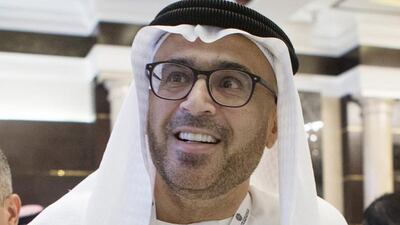Among the most important history-making initiatives in any community are those related to knowledge. Nations and civilisations that embraced education have strongly advanced towards progress, prosperity and cultural excellence.
The Year of Reading Initiative, launched by President Sheikh Khalifa in December 2015, fell within this framework. The initiative aimed at encouraging reading and instilling it as a general public behaviour to create a new generation of intellectuals able to lead the way to the comprehensive development and advancement of the UAE. As Sheikh Khalifa said: “Knowledge will remain key for prosperity and reading is key for education and knowledge. The first verse in the Quran is ‘Read’.”
This noble initiative comes from discussions on the importance of reading itself for both the individual and society. It is through reading that individuals avail modern knowledge, and learn of the latest ideas, experiences and innovations. It also allows communities to acquire basic skills that enable them to cope with the cultural renaissance experienced by the world.
Arab and Islamic civilisation grew and prospered thanks to the translation and publishing movement that enabled early Muslims to see the ideas of other cultures, benefit from their intellectual productions and build on them. The same goes for modern western European civilisation which, in turn, learnt from the intellectual achievements of the Islamic and other civilisations. It then built on them to emerge from the Dark Ages of ignorance to the Renaissance and modernity at a time when the Arab and Islamic civilisation entered a phase of intellectual stagnation and decline, and fell into ignorance and superstition.
Reading plays an important role in the individual’s awareness of others and understanding of their cultures and values as a foundation for building bridges of communication.
By developing critical thinking, reading protects individuals from being dragged behind extremist illusions and ideas that some political and religious groups are trying to promote to spread hatred and violence. An educated and well-read individual can easily refute the ideas of such distorted and deviant groups.
The Year of Reading initiative set a long-term strategic goal to consolidate the position of the UAE as a capital of content, culture and knowledge. Several other initiatives have been linked to these strategic goals, especially the National Strategy for Reading in the UAE (2016-2026), which set up a Dh100 million fund to support reading and dedicates a month for reading every year. The initiatives also include a national law for reading, and changes in the educational systems and curriculums to build a well-informed generation of Emiratis who read. The initiative cannot be separated from the broader strategic goal of the UAE leadership: building capable individuals with the talents to achieve the country’s ambitions while advancing and prospering in all fields.
The initiative is also closely related to efforts to establish a knowledge-based economy to maintain the progress of the country and the welfare of its citizens. Without reading, there cannot be an educated, innovative citizen who is able to lay the foundations for knowledge-based economy and lead sustainable development.
The more important aspect of this initiative may be that, with its goals and effects, it goes beyond the framework of the UAE. Through this initiative, the UAE represents, as always, a shining model for other Arab and Muslim nations that have suffered, and continue to suffer, not only a lack of interest in reading and acquiring modern knowledge, but even illiteracy.
As Sheikh Mohammed bin Zayed, the Crown Prince of Abu Dhabi and Deputy Supreme Commander of the Armed Forces, notes: “The reality of culture in the Arab world is lamentable. We are around 300 million people, however, there are no more than 5,000 best-selling books from the east to the west.”
The 5th Arab Report for Cultural Development, issued by the Arab Thought Institute in 2012, showed that Arabs spend a very small amount of time reading, while Europeans, on average, read 200 hours a year.
Consequently, it is natural that Arab universities are absent from the list of the 100 top universities in the world. The Arab world has become a consumer of what science produces in other countries.
In light of this painful reality, the Year of Reading Initiative 2016 was launched, along with other initiatives and procedures. In June 2016, Sheikh Mohammed bin Rashid, Vice President and Ruler of Dubai, launched the Reading Nation campaign that distributed 8.2 million books to students, refugees and people in need in the Islamic world.
Another initiative, the Arab Reading Challenge, encourages students in the Arab world to read, with more than a million pupils committing to read several extracurricular books every year. This is a serious Emirati attempt to close a huge gap in the wall of knowledge and culture, and to motivate Arab countries to step out of cultural decline.
Dr Jamal Sanad Al Suwaidi is the director general of the Emirates Centre for Strategic Studies and Research

